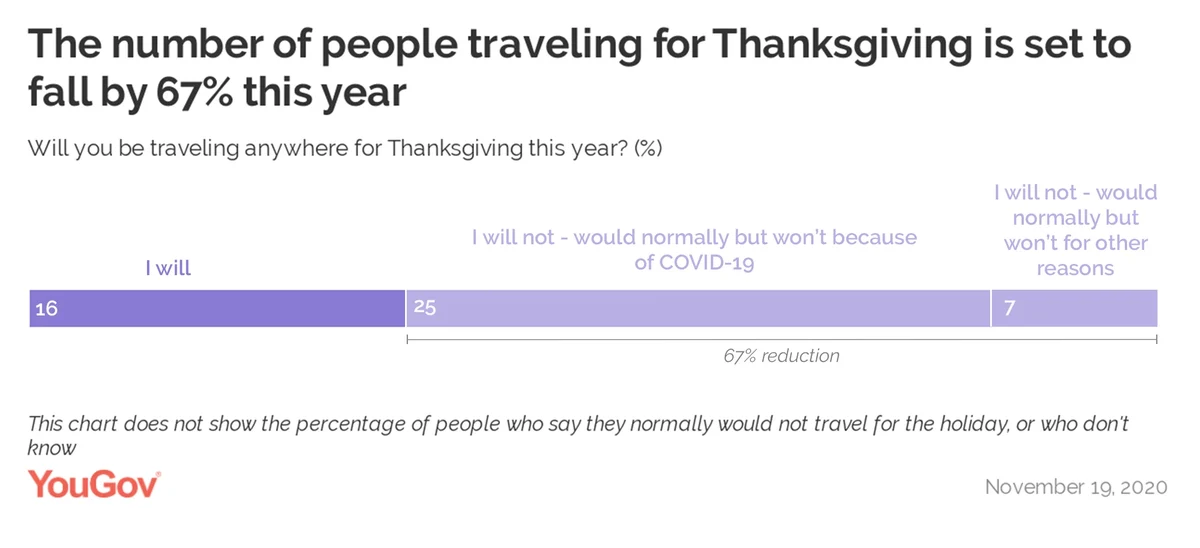Public health officials and politicians alike have suggested that Americans shouldn’t travel for Thanksgiving celebrations this year because of the COVID-19 pandemic. YouGov’s data finds that many Americans are taking heed of this advice, while others are deciding to risk it.
According to a recent YouGov survey, 16% of Americans say they will be traveling for Thanksgiving this year. One-quarter (25%) say they typically would travel for the holiday, but are skipping the trip this year because of COVID-19. Another 7% would normally be relocating but are not doing so this year for reasons unconnected to the virus.
This implies that in a normal year nearly half of Americans (48%) would be traveling for the holiday. The fact that just 16% still intend to do so indicates a 67% reduction in participation.

About half (49%) of Americans say they wouldn’t normally travel for Thanksgiving in any case, and won’t be doing so this year.
A separate survey of more than 2,800 US adults finds that 68% of Americans say they are concerned about COVID-19 cases increasing in their community because of Thanksgiving-related travel. Those who live in cities (76%) are more likely than those in suburbs (67%), towns (65%) and rural areas (60%) to be worried about this.
Women (47%) are also more likely than men (38%) to say that they are “very” concerned about COVID-19 cases increasing in their community because of Thanksgiving.
See full results for these questions.
Methodology: 1,200 US adults were asked “Will you be traveling anywhere for Thanksgiving this year?” The survey was carried out through YouGov Direct on November 19, 2020. Data is weighted on age, gender, education level, political affiliation, and ethnicity to be nationally representative of adults in the United States. The margin of error is approximately 4.2% for the overall sample.
2,821 US adults were asked “How concerned, if at all, are you about COVID-19 cases increasing in your area because of people traveling for Thanksgiving?” The survey was carried out through YouGov Direct from November 12 –13, 2020. Data is weighted on age, gender, education level, political affiliation, and ethnicity to be nationally representative of adults in the United States. The margin of error is approximately 2.6% for the overall sample.










